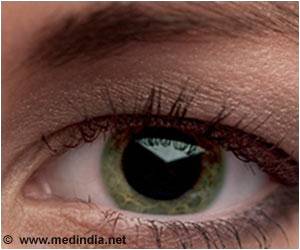Sometimes there are weird and unexpected health connections in the human body. This is one among them. This is the first time a link between diet, circadian rhythms, eye health, and lifespan has been established in Drosophila.
Previous studies have shown in humans that there is an association between eye disorders and poor health. But the new study argues that it is more than correlation, dysfunction of the eye can drive problems in other tissues.
Advertisement
“The finding that the eye itself, at least in the fruit fly, can directly regulate lifespan was a surprise to us,” said lead author, Brian Hodge, PhD.
Mystery Behind Eye Health And Lifespan
The explanation for this connection lies in circadian “clocks,” the molecular machinery within every cell of every organism, which has evolved to adapt to daily stresses, such as changes in light and temperature caused by the rising and setting of the sun.
These 24-hour oscillations circadian rhythms affect complex animal behaviors, such as predator-prey interactions and sleep/wake cycles, down to fine-tuning the temporal regulation of molecular functions of gene transcription and protein translation.
Previously, they found fruit flies on a restricted diet had significant changes in their circadian rhythms in addition to extending lifespan.
When researchers wanted to dig deeper to figure out which processes that enhance circadian functions were altered by the diet change, and whether circadian processes were required for the longer lifespan seen with dietary restriction.
The study began with a broad survey to see what genes oscillate in a circadian fashion when flies on an unrestricted diet were compared with those fed just 10 percent of the protein of the unrestricted diet.
Later, they discovered that the rhythmic genes that were activated the most with dietary restriction all seemed to be coming from the eye, specifically from photoreceptors, the specialized neurons in the retina of the eye that respond to light.
This finding led to a series of experiments designed to understand how eye function fits into the story of how dietary restriction can extend lifespan.
We always think of the eye as something that serves us, to provide vision. We don’t think of it as something that must be protected to protect the whole organism.
This opinion can be changed now. Since the eyes are exposed to the outside world, the immune defenses there are critically active, which can lead to inflammation, which presents for long periods and can cause or worsen a variety of common chronic diseases. Additionally, light in itself can cause photoreceptor degeneration which can cause inflammation.
Once researchers understand how these processes are working, they can begin to target the molecular clock to decelerate aging, adding that it may be that humans could help maintain vision by activating the clocks within our eyes. A lot of really interesting research lies ahead.
Source: Medindia



